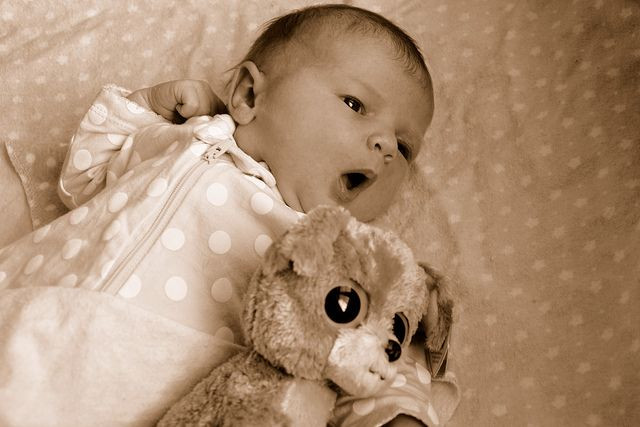Do Babies Know When We're Faking? Toddlers As Young As 18 Months Spot Fakers From Miles Away

Dissembling parents beware: your baby can easily call you out. According to a new study from Concordia University, infants can be just as perceptive as adults when it comes to matching emotions and attitudes with a given experience. The finding shed new light on the development and evolutionary significance of emotion recognition.
Published in the journal Infancy: The Official Journal of the International Society of Infant Studies, the new study shows that babies as young as 18 months can comprehend the relationship between expression and experience. Long before they perfect speech, young children understand the basic rules of communication, and can thus spot a faking adult with ease. According to co-author Diane Poulin-Dubois, the discovery may help caregivers and parents realize that their babies are not as gullible as they look.
"Our research shows that babies cannot be fooled into believing something that causes pain results in pleasure,” she said in a press release. “Adults often try to shield infants from distress by putting on a happy face following a negative experience. But babies know the truth: as early as 18 months, they can implicitly understand which emotions go with which events."
To investigate babies’ understanding of the link between emotion and experience, the researchers enrolled 92 infants in an experiment. The young participants first watched an actress cycle through a variety of different scenarios where expression and experience either agreed or disagreed. In mismatch scenarios, the actress would express a clearly dissonant emotion, such as sadness upon receiving a desired toy.
The researchers found that for subjects around 18 months of age, the dissonant scenarios seemed fishy right away. When the actress showed an emotion that clearly did not match experience at hand, the average subject would spend a considerable amount of time examining her face. In addition, perceptive babies would repeatedly look over at their caregiver to gauge his or her reaction to the obvious mismatch.
According to co-author Sabrina Chiarella, the early development of this understanding may serve as a check on our instinctual reaction to sadness and negative stimuli.
"The ability to detect sadness and then react immediately has an evolutionary implication,” she explained. “However, to function effectively in the social world, children need to develop the ability to understand others' behaviors by inferring what is going on internally for those around them."
So the next time you are playing peekabo with your kid, remember that you're not fooling anyone.



























